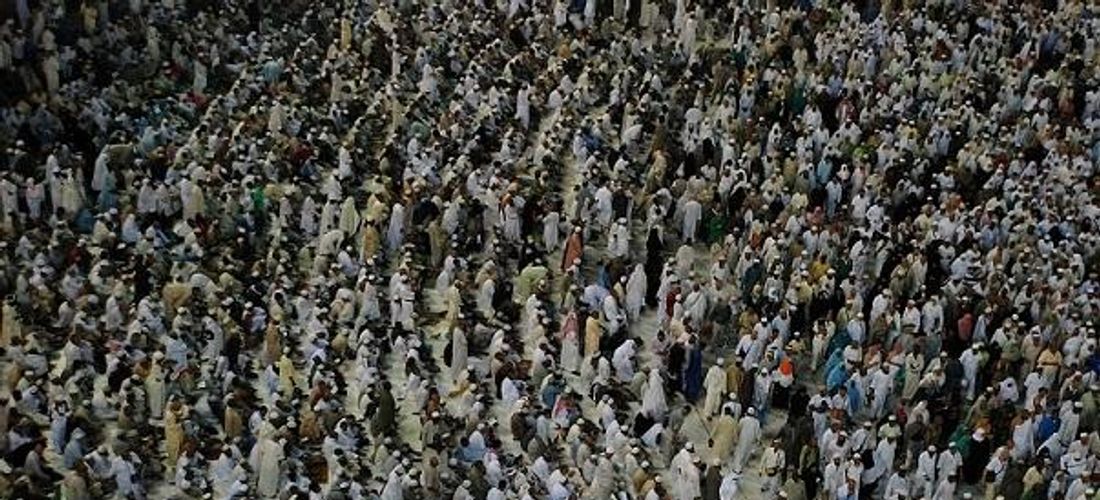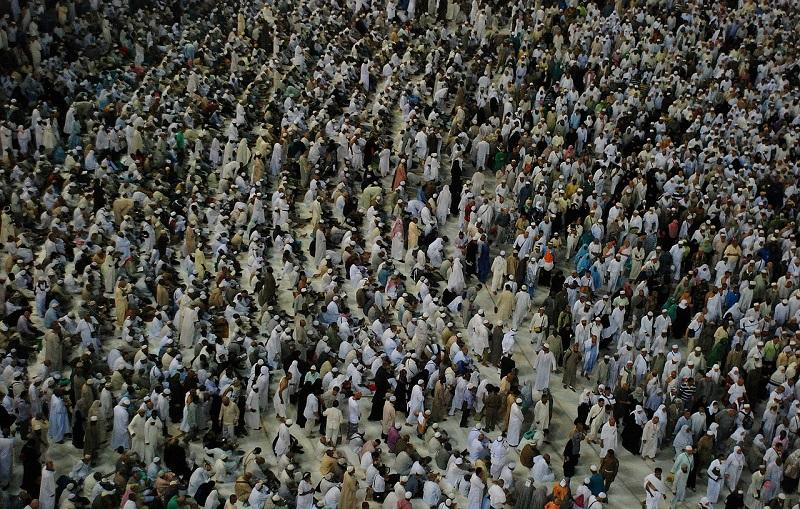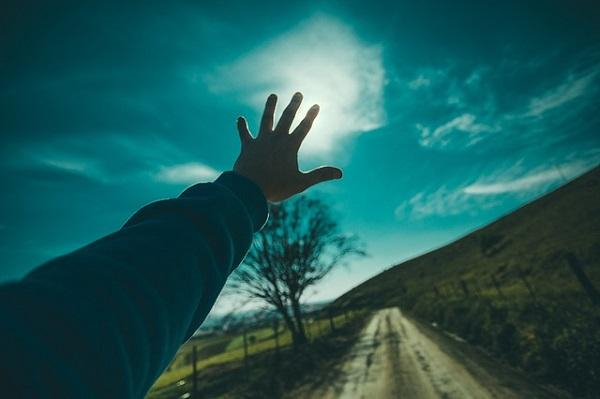When the Invitation is Beyond You - for Those Who May Never Go for Hajj
Faith
|
Aug 1, 2019
|
4 MIN READ

By Nakia Jackson
‘Tis the season: I’ve been trying to tidy the house and prepare for Eid ul-Adha, while news of acquaintances departing for Saudi Arabia has filled my newsfeed. Watching the departures for Hajj has always been bittersweet. I love watching videos featuring the traditional decorations, special foods and customs. Here in the U.S., new traditions are emerging among African American Muslims that reflect our journey (back?) to Islam.
But, I’ve always felt on the outside of these celebrations. I’ve wondered if I’d ever have a local community or even a family that would gather to see me off. I’ve wondered if I could ever afford Hajj, being inclined more toward professions that are more intellectually rewarding than financially rewarding.

I’ve wondered if I could ever leave my autistic son with others long enough to go across town, let alone across the globe. Knowing what I know, I’ve finally accepted the high likelihood that I, like the vast majority of the world’s Muslims, will never lay eyes upon Masjid al-Haram.
If you’re now expecting an overview of what a significant obligation Hajj is, I’m sorry to disappoint you. Every other discussion on Hajj talks about who is obliged to go, when and where, despite the fact that this information does not change.
I am more concerned with who gets left behind.
We are relatives - usually mothers and wives - whose households cannot function without us, as we are (among other things) caring for children or elders. We are disabled Muslims who cannot withstand the activity, crowds or weather. We are poor Muslims who are scraping together just enough to get by day to day, paycheck to paycheck — with dreams about crossing the globe having to remain as dreams.
Whether we get to go on Hajj or not, Muslims the world over are familiar with the talbiyah. It is recited by pilgrims on Hajj, and it begins, “Labbayk Allahumma, labbayk…,” or in English, “Here I am, oh Allah, I am here.” You will hear it in videos of the Hajj, from male pilgrims resplendent in white ihram, and from female pilgrims in clothing that reflects the immense ethnic diversity of the global Muslim community.
The talbiyah is a response to an invitation, for during the Hajj pilgrims are guests of the source of generosity, one whose protection and provision has no limit. However rough the journey, the invitation extended by such a host is almost never refused.
For those of us who are left behind, there are the blessed days of Dhul Hijjah. These are days to strive to be better, to be more aware of Allah. We prepare for udhiya, an animal sacrifice to remind us of Ibrahim’s (AS) willingness to obey Allah even unto violating the sanctity of human life.
We prepare for Eid ul-Adha with feasts, finery and gifts. Muslims have talked of these almost as consolation prizes, a sentiment that is not mitigated with the traditional prayer that we be among His guests next year. Wanting to go on Hajj with the intention of fulfilling the obligation is a beautiful thing. The experience has no equal. But for now, we who are not Makkah-bound are here.
If it were not for the adults who care for children, parents may not be able to make the pilgrimage for years. When work schedules are rearranged to accommodate pilgrims, it’s often other Muslims who help make the adjustments smooth, whether by taking on extra work or curtailing business hours. Pilgrims who have household help come home to cleanliness and order, thanks to other Muslims, who often don’t earn enough to make the journey themselves.
For every Muslim who stands on Mount Arafat, there are several back at home who made it possible.

We are here, and just as the pilgrims’ presence in Makkah was decreed by Allah, so was our presence in our communities. Allah has decreed that we remain at home to care for our families or ourselves. Our place is with the businesses pilgrims leave behind. We must teach new Muslims and young Muslims about the blessings of this time and of the Hajj. We belong at the Eid prayer, which can be an important opportunity for interfaith outreach.
We are not taking time away from daily life to immerse ourselves in ritual. We are maintaining a daily life for pilgrims to return to. I may never set foot in the Sacred Precincts, but I go where Allah has willed and where I am needed. So long as Allah is pleased with where my long-suffering shoes are taking me, I will be pleased with my destination.
The ability to go on Hajj is a sign of some level of earthly privilege. You must be more-or-less able-bodied and mentally well. You must possess the means to make the journey. These days, one must navigate the bureaucracy that’s sprung up around the process of international travel, which often requires that one be literate and very patient.
The Hajj was never designed for all Muslims. Whether that reflects the best of our faith is a question larger than anything I dare tackle. But while the pilgrims run between Safa and Marwah, they are the equal of the Muslim who is then running for the bus to reach their second job on time.
The pilgrim who stays at Muzdalifah can do so because of their cousin who is staying up with the children. What we receive in this life can make things convenient, but it is what we do with what we are given upon which we will be judged. The pilgrims are here by the decree of Allah, ready to serve Him alone.
And we are here, too.
Nakia Jackson is a mom, musician and writer. From her first (terrible) story at age six to the ad copy and background music she sells to keep the family in yarn and Cheerios, creating has been her life’s breath. When not creating, Nakia enjoys family excursions designed to show the world that normal is merely a setting on the washing machine. This story was originally published on Altmuslim.
Subscribe to be the first to know about new product releases, styling ideas and more.
What products are you interested in?

